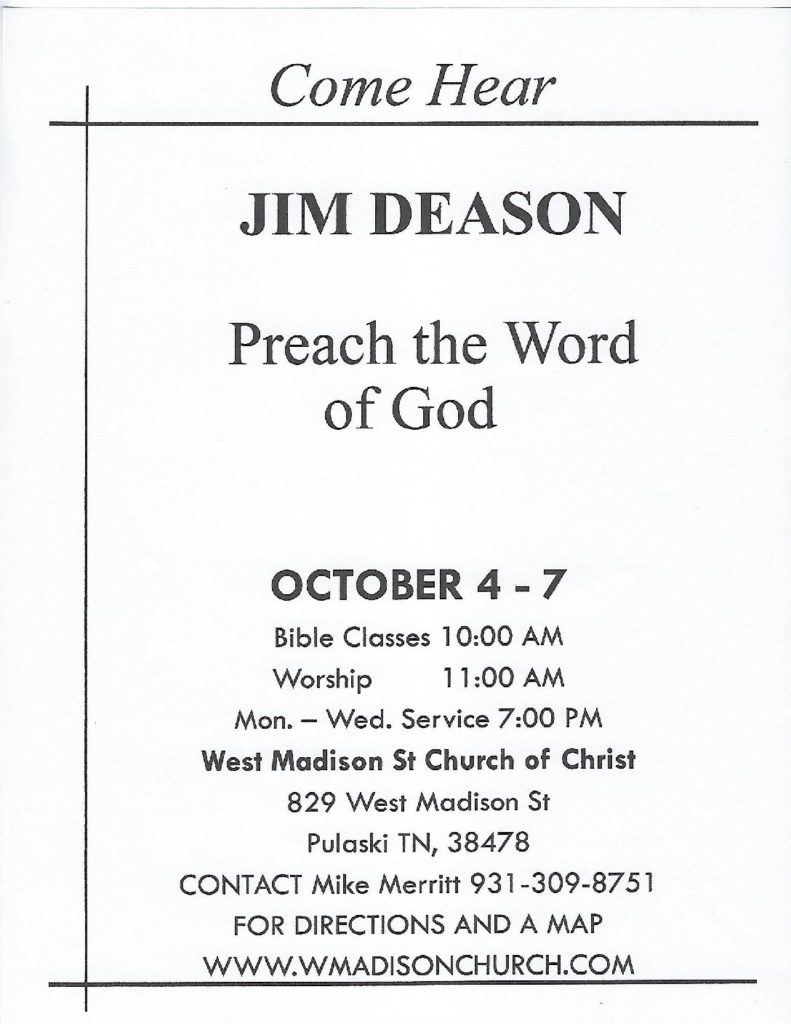1 Peter 5:2- shepherd the flock of God that is among you, exercising oversight, not under compulsion, but willingly, as God would have you; not for shameful gain, but eagerly
As
the leaders of congregations, elders have many duties. First off,
they are responsible for the teaching of the flock. This means not
only must they take an active role in teaching but that they keep an
eye on what is being taught. It is they who protect the flock,
fighting false doctrine whenever it rears its ugly head and
addressing any sin within the congregation. Finally, they are to
care the members, putting their needs above their own and serving
them dutifully and faithfully. This demands that they know their
members well and to love them enough to sometimes put up with
difficult people.
Though
we only listed three duties, they have a wide range of applications
that can be both difficult and time consuming. However, there are
those who wish go beyond their God-given duties and add more than is
allowed. This begs the question on where the authority of elders
ends. Before any man becomes an elder, he must know the answer to
this question and have the humility to not go beyond God’s
boundaries.
First
off, he is not to go beyond God’s word. This goes without saying but
there are many who fail to understand this. The authority goes to
their heads and they believe that they can do as they please. In
situations where this happens, the congregation accepts false
teachings and as such the congregation is hurt as a whole. Their
overall relationship with God is destroyed.
Second,
he is only in charge of the congregation he is an elder of. As seen
in our main passage, 1 Peter 5:2, the apostle tells the elders to
shepherd their flock. Though this responsibility is daunting in and
of itself, there are those who desire to go beyond this. They wish
to see the elders of one congregation oversee the work of many and in
essence “sponsor” them. For many, the original intention is good
but regardless it does more harm than they realize. It falls under
the first category we mentioned and tarnishes not only their
relationship with God but also those of other congregations as well.
Lastly,
he is not in it for himself. The author has not heard of many cases
of this but there are men who become elders desiring the power and
prestige it can bring. In these cases, they use their position to
achieve their own desires and the good of the congregation comes
second. These men have missed the point of being elders. They are
there not only to serve God but also the congregation. Their goal
must be to see their group grow spiritually and without this desire
they will not be effective leaders.
The
job of an elder is not always easy but as Paul says in 1 Timothy 3,
it is a good and necessary work. Though we did not cover them here,
the qualifications alone are hard to live up to and then the work
itself is not easy. However, all men should desire to fit the
standard if not have the position itself. Those that do strive to
become elders must understand these qualifications and exactly what
the job entails before making this decision. One final note though
is that elders do not become them of their own initiative but are
appointed by others. Though this is the case, the choice to accept
is still the man’s and he must understand it thoroughly. Let us all
take time to study every aspect of God’s word, including this.

